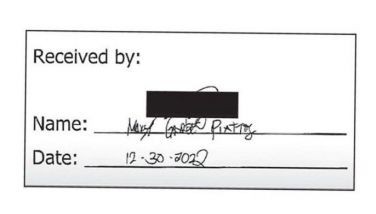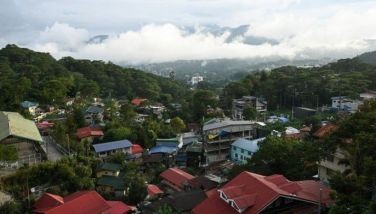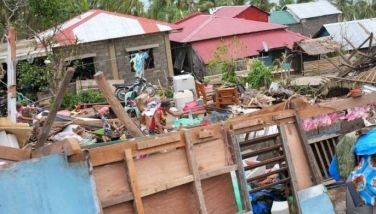Pinoys recruited as mercenaries in Iraq
February 27, 2007 | 12:00am
Private western security companies are recruiting Filipinos who are former policemen and soldiers as mercenaries and sending them into dangerous areas like Iraq, according to a United Nations report to be presented next month.
Private security guards employed by western companies make up the second highest number of armed forces currently posted in Iraq, after the United States military, but ahead of the British troops, said Jose Luis Gomez del Prado, the head of a UN workgroup on the use of mercenaries.
"At least 160 companies are operating in Iraq. They probably employ 35,000 to 40,000 people," Gomez del Prado said on the sidelines of a second workgroup session in Geneva last week.
More than 400 of these private employees have died in Iraq since 2003, putting their casualties below the number suffered by US Armed Forces but ahead of British military deaths, he said. "And a lot more have been injured."
The workgroup is scheduled to deliver a report to the UN Commission for Human Rights next month emphasizing concerns over mercenary recruitment methods used by US companies like Triple Canopy and Blackwater.
Aside from Filipinos, many of the recruits come from Peru and Ecuador, according to the workgroup, which recently conducted missions to the latter two countries.
"They are trained quickly but not prepared for armed conflict situations," Gomez del Prado said.
"They are sent there, they receive M-16 (assault rifles) and are placed in very dangerous areas like the Green Zone (in Baghdad), convoys and embassies," he added.
While the recruits sometimes carry out important and honorable tasks like protecting humanitarian organization convoys, they are also "in a situation where they can violate human rights because they are armed," according to Gomez del Prado.
And while Americans and Europeans working in war zones for private security companies often make as much as $10,000 a month, Filipinos and Peruvians doing the same job seldom make more than $1,000, and their working rights are often violated, he said.
"The contracts they sign often hide things that aren’t clear. The original is in English, which most of them do not speak," Gomez del Prado said.
The recruits are entitled to the labor rights applied in the country where the company hiring them is headquartered, but he pointed out that it is hard to imagine "a poor Peruvian filing suit in an American court." – AFP
Private security guards employed by western companies make up the second highest number of armed forces currently posted in Iraq, after the United States military, but ahead of the British troops, said Jose Luis Gomez del Prado, the head of a UN workgroup on the use of mercenaries.
"At least 160 companies are operating in Iraq. They probably employ 35,000 to 40,000 people," Gomez del Prado said on the sidelines of a second workgroup session in Geneva last week.
More than 400 of these private employees have died in Iraq since 2003, putting their casualties below the number suffered by US Armed Forces but ahead of British military deaths, he said. "And a lot more have been injured."
The workgroup is scheduled to deliver a report to the UN Commission for Human Rights next month emphasizing concerns over mercenary recruitment methods used by US companies like Triple Canopy and Blackwater.
Aside from Filipinos, many of the recruits come from Peru and Ecuador, according to the workgroup, which recently conducted missions to the latter two countries.
"They are trained quickly but not prepared for armed conflict situations," Gomez del Prado said.
"They are sent there, they receive M-16 (assault rifles) and are placed in very dangerous areas like the Green Zone (in Baghdad), convoys and embassies," he added.
While the recruits sometimes carry out important and honorable tasks like protecting humanitarian organization convoys, they are also "in a situation where they can violate human rights because they are armed," according to Gomez del Prado.
And while Americans and Europeans working in war zones for private security companies often make as much as $10,000 a month, Filipinos and Peruvians doing the same job seldom make more than $1,000, and their working rights are often violated, he said.
"The contracts they sign often hide things that aren’t clear. The original is in English, which most of them do not speak," Gomez del Prado said.
The recruits are entitled to the labor rights applied in the country where the company hiring them is headquartered, but he pointed out that it is hard to imagine "a poor Peruvian filing suit in an American court." – AFP
BrandSpace Articles
<
>
- Latest
- Trending
Trending
Latest
Trending
Latest
Recommended




























